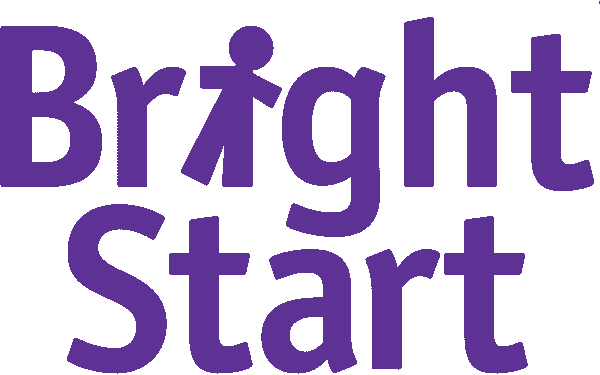One of our Speech Therapists here at Bright Start explains the role of verbal routines and social games when training childhood language development.
TRANSCRIPT:
Hey everyone, my name is Katie and I’m a speech therapist for Bright Start. Today, I will be discussing the benefits of using social games and verbal routines to address pre verbal and early language skills. So first of all, what are social games and verbal routines? Well, social games are songs and rhymes that include movements. A common example of this would be patty cake. Verbal routines are words and phrases that are repeated at predictable times during a routine. They are both practical, natural ways to address multiple goals.
Some goals that are often targeted using these games include early skills, such as noticing, participating, anticipating, and requesting the game. Social games and verbal routines can also be used to address communication concepts, such as joint attention, turn-taking, imitation of motor movements, following directions, building knowledge and use of vocabulary, making requests, and understanding concepts like spacial concepts, whether that be on top, in, off, fast, slow, open, close, up, down, and many more.
In the first video you will see a child and I playing the game of achoo. Notice that as she begins to initiate the game, I start to introduce her to directional terms up and down. She is then able to change up the routine and include different stuffed animals. One thing to keep in mind during these games is the importance of exaggerating your voice and facial expressions. This helps to keep the child engaged and makes it easier for the child to imitate.
